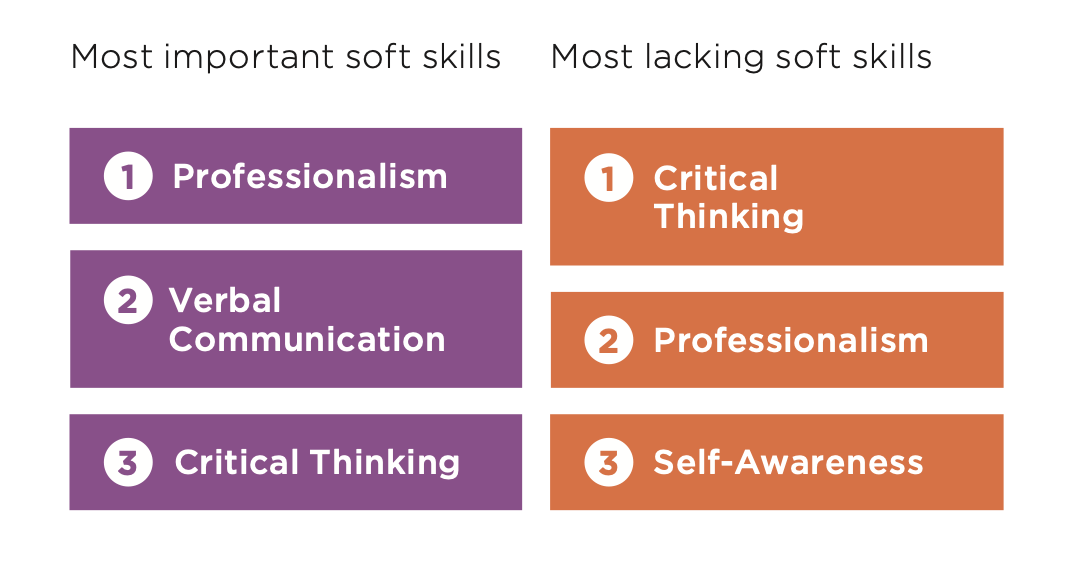The medical assistant spends a lot of time with patients, making soft skills essential to patient interactions and patient satisfaction. In our recent survey of employers in the 2020 Industry Outlook, the soft skill that's most important for medical assistants to possess is professionalism. It's also one of the most lacking.

Keep reading to learn more about this essential soft skill, why it's important for medical assistants, and how you can improve in this area for career growth.
What is professionalism?
Someone who exhibits professionalism takes their work seriously. They are respectful and respected, and exude a level of skill that makes colleagues and patients take notice. Some qualities of someone with strong professionalism include:
- reliable
- trustworthy
- courteous
- respectful
- dedicated
- competent
When is professionalism needed in the role of the medical assistant?
As a medical assistant, you play a central role to the healthcare team. When you're collecting information from a patient, you need to be professional so that the patient feels safe and trusts you. When you're relaying information to a provider, they need to know you're reliable and thorough. If you're administering injections or helping with a procedure, professionalism will go a long way in giving patients and providers confidence in your skills.
Why is professionalism important?
Professionalism is important in virtually every career, but particularly in healthcare, when trust plays a huge role in patient satisfaction. Patient satisfaction, which is measured in surveys and reviews, is often the number one priority of healthcare institutions. Healthcare workers who possess strong professionalism are contributing not only to the satisfaction of their patients, but also to the success of the healthcare practice.
More than 93% of employers feel that health professionals do not have adequate training on soft skills, according to our 2017 access™ job readiness research report.
Can professionalism be learned?
Soft skills, including professionalism, can absolutely be learned. Just like anything, it takes knowledge and practice.
NHA's PersonAbility™ program helps allied health professionals like medical assistants learn, practice, and develop essential soft skills using the power of virtual human simulation. In this online program, you can learn skills to improve your professionalism and develop your personal brand.
Want to learn more about PersonAbility™ and invest in your career development?


